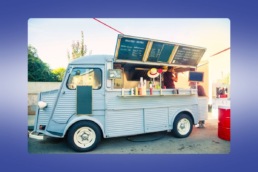Insurance for Food Trucks: Understanding Your Liability and Risk
Food truck insurance is required in the U.S., just like insurance for any other business in the food industry. The specific types of coverage you need will depend on where your vehicle is parked and what kind of food you serve.
General Liability Insurance, Property Damage Insurance, and Auto/Truck Liability Insurance are usually great options when you’re starting out. Workers’ compensation and product liability insurance are also very important coverages to consider.
This article will cover the basics of each type of insurance and why you might need it. Read on to learn more about the importance of food truck insurance and what you should consider before purchasing a policy.
The Importance of Coverage for Food Trucks
Food trucks have become an increasingly popular option for entrepreneurs. Running a successful business can come with its own unique set of risks.
Having the right insurance policies in place is essential for safeguarding against losses. These damages can happen due to property damage, bodily injury, and other possible liabilities.
In order to make an informed decision about which types of coverage are necessary for your food truck, it is important to consider factors.
Commercial general liability and auto liability protects from property damage and injury claims. Product liability coverage helps protect from any issues. Business interruption insurance also provides necessary coverage in case operations are interrupted. These often occur due to natural disasters or other unexpected events.
Furthermore, food trucks also need to consider workers’ compensation insurance for their employees. This type of coverage ensures medical and disability benefits to those injured.
Ultimately, having food truck insurance in place is essential for any food truck business.
Liability Coverage
Food truck owners face a variety of liability risks. These include property damage, bodily injury, and advertising injury.
Property damage can occur when customers slip and fall on your premises or if there is a collision involving one of your vehicles. Bodily injury risks must be considered if a customer is injured while at your food truck. Finally, advertising injury can include claims by a business over copyright infringement.
Fortunately, commercial general liability and auto liability insurance coverage is available. This help protects food truck owners against such risks.
Commercial general liability covers the costs related to third-party property damage claims. In contrast, auto liability covers the costs of accidents that happen when operating vehicles.
Additionally, you may want to consider workers’ compensation and liquor liability coverage. Workers’ compensation provides protection for employees injured on the job. Liquor liability protects from any incident involving alcohol at an event served by a food truck.
Property Coverage
Protecting your property against theft and damage is crucial for any food truck.
Equipment, tools, and refrigeration are all important components of running an efficient operation. Without these items in working order, it would be difficult to serve customers as they expect.
That’s why having the right coverage in place can help ensure that you won’t suffer financial losses.
Business interruption coverage helps food truck owners guard against income losses. These can occur due to natural disasters, power outages, or other circumstances that prevent normal operations.
Product liability insurance also helps protect food truck owners from claims in relation to products. Examples include food safety and quality issues. Customers want to trust that what they purchase from you is safe to consume, but businesses still need to have this type of protection in place in case something goes wrong.
Additional Considerations You Need to Make for Food Truck Insurance
When considering insurance policies for a food truck, it is important to analyze cost factors. You need to understand the associated risks.
There are some simple steps that owners can take to help reduce risk and decrease premiums. Examples include good maintenance of equipment and enforcing safety protocols for customers.
Additionally, there may be specific policies that are required by local governments. It is essential to research these requirements thoroughly before making a decision.
Commercial general liability and auto liability coverage can provide protection. This applies to property damage, bodily injury, and advertising injury risks. In addition, business interruption coverage helps guard against income losses due to events. Product liability insurance safeguards from claims related to products sold by the food truck.
Note that taking time to consider cost, reduce risk, and research regulations is critical.
Tips for a Successful Food Truck Business
Every city has its own ordinances that can affect food truck businesses, from where you can park to what types of permits you need. Make sure to do your homework so you know exactly what is required of you before setting up shop.
Having high-quality equipment like refrigerators and proper storage ensures ingredients are fresh.
Make sure to promote your business on social media outlets such as Facebook, Twitter, Instagram, or YouTube. This way, customers can find out about upcoming events or specials right away!
By following these tips and investing in the right insurance policies, you can make sure your food truck business succeeds.
Insurance Done Right
Having the right food truck insurance in place can help protect food truck owners.
By understanding the types of liability coverage and doing research, businesses can be certain they are adequately protected against property damage and bodily injury.
With these steps taken, you can be confident that you have the right insurance coverage in place. This will ensure that you are guarded against costly liabilities.
Get in touch with us if you’re interested in learning more about the right type of insurance for your food truck.
